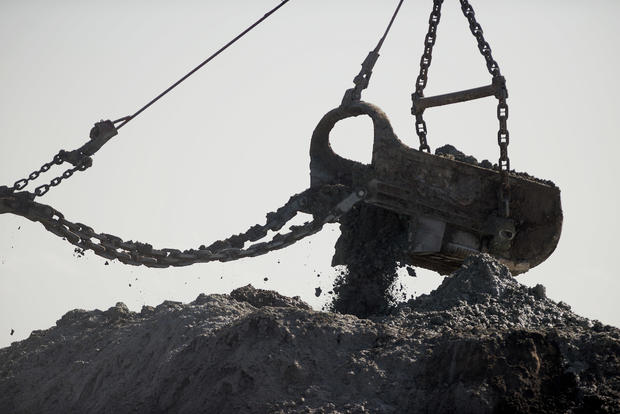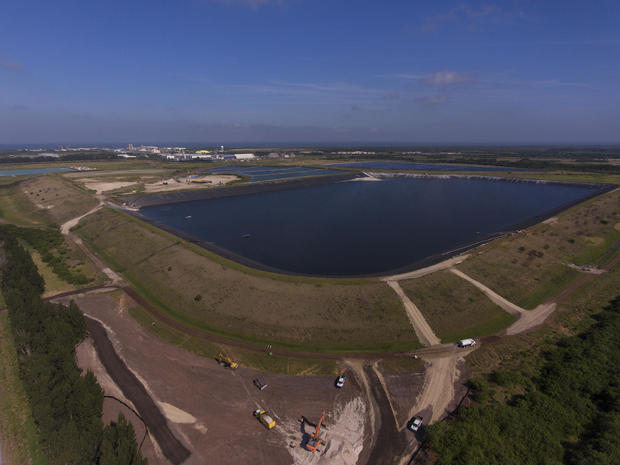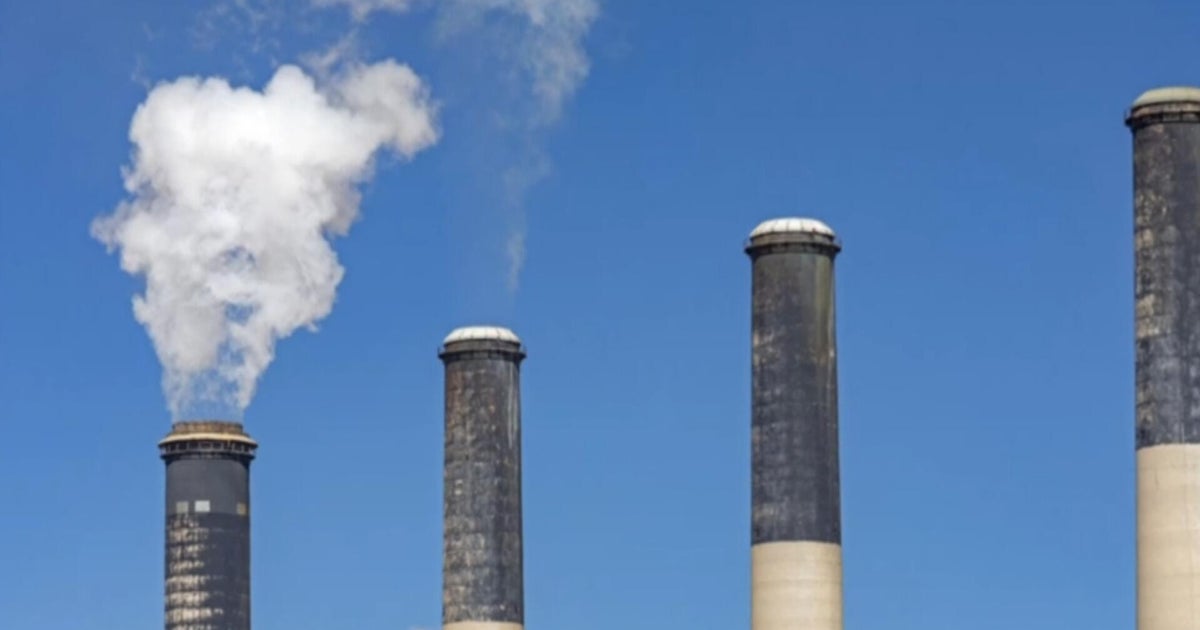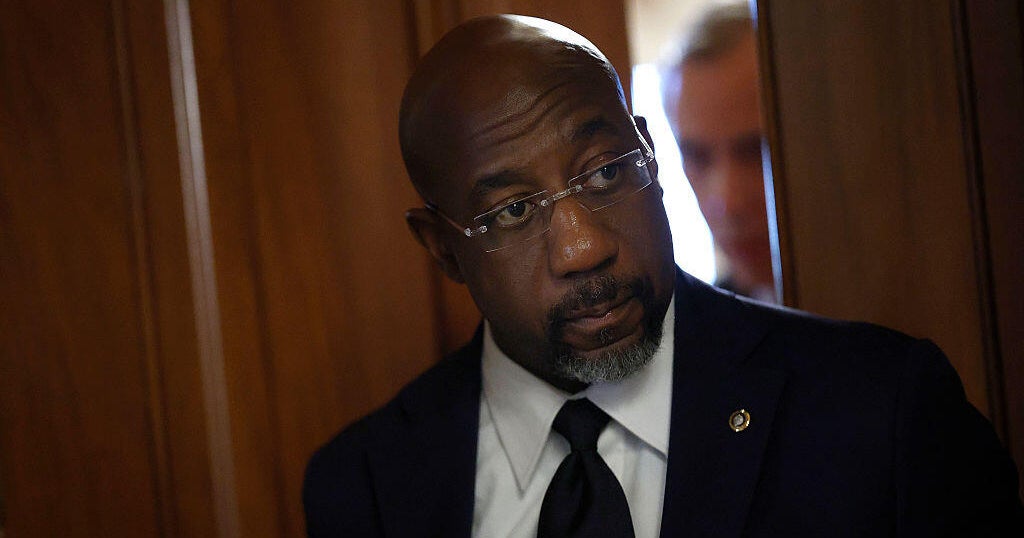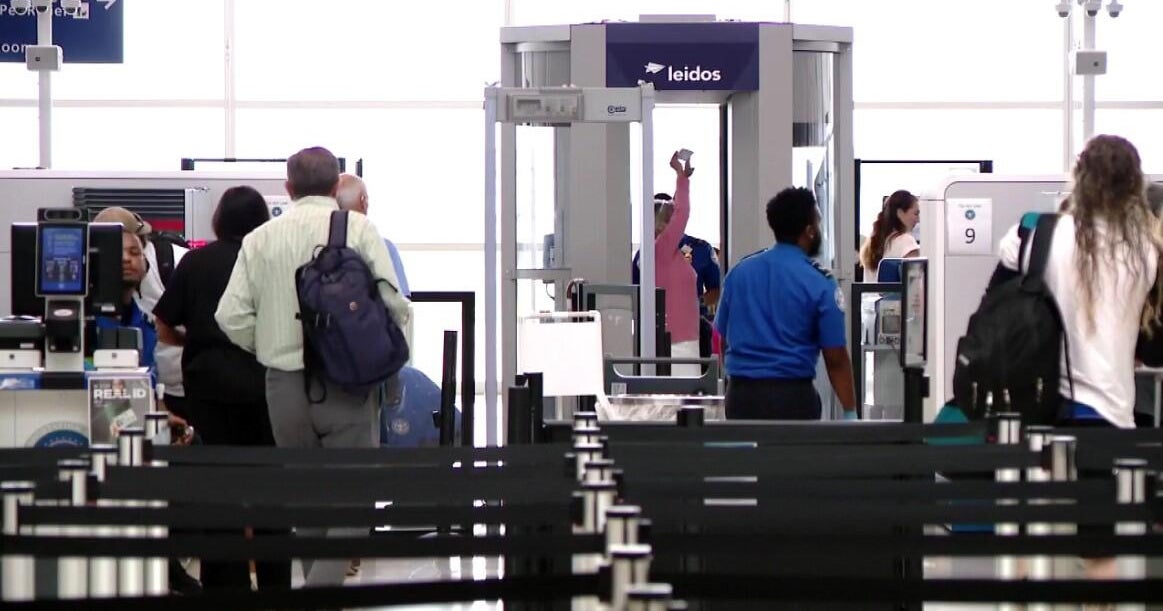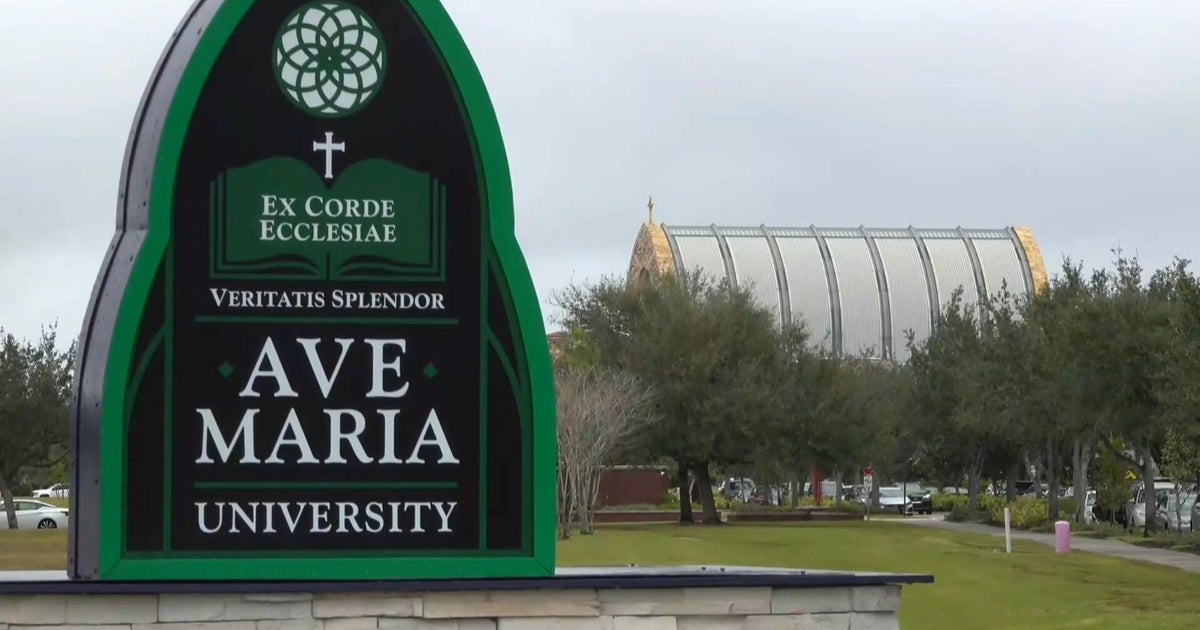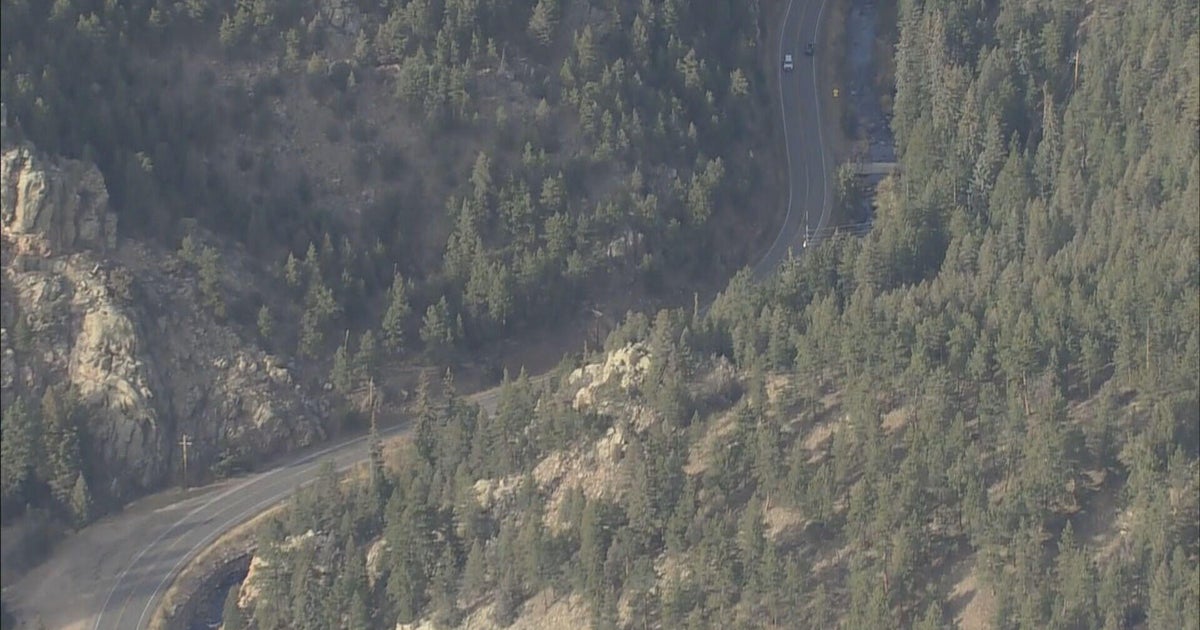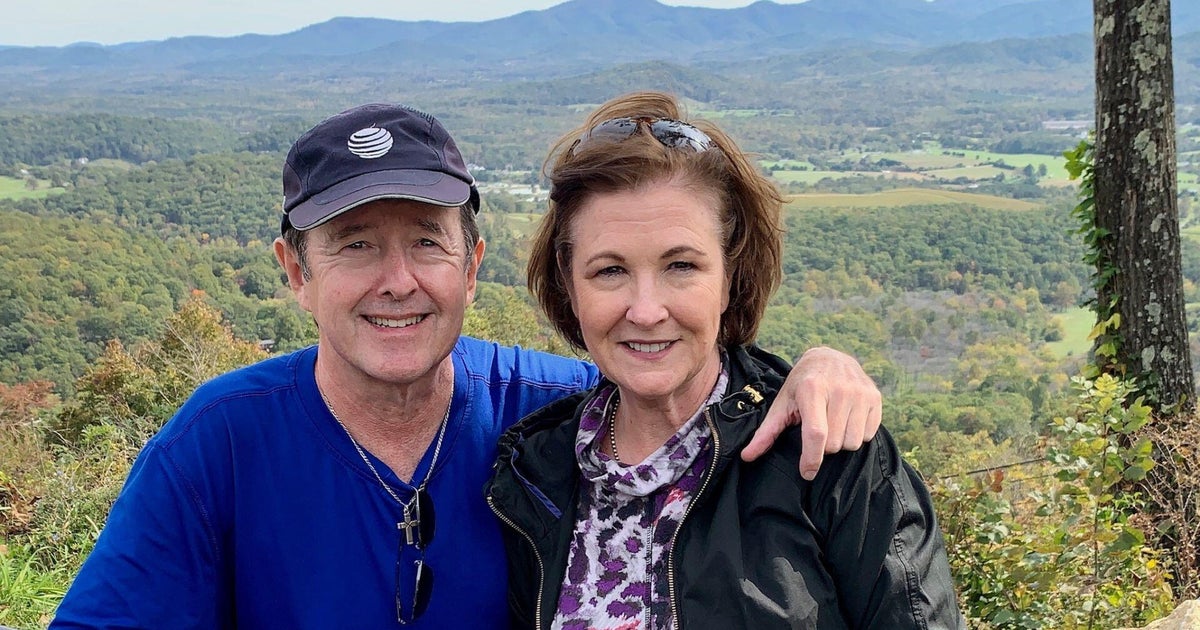"Radioactive" roads made of potentially cancer-causing mining waste could be headed to Florida under new bill
Florida lawmakers are pushing a new bill that, if signed off by Gov. Ron DeSantis, could pave the way for new roads across the state to be made with "radioactive" mining waste that critics say could pose a risk to people and the environment.
The Florida Senate has approved the bill that would authorize the state's Department of Transportation to use phosphogypsum in "road construction aggregate material." Phosphogypsum is the waste left behind from mining phosphate rock, which is commonly used for producing fertilizer, and is known for containing "radioactive material," according to the EPA.
Phosphate rock contains "small amounts" of uranium and radium, the EPA says, and in the leftover waste, those elements decay to radium, which then becomes radon, a "potentially cancer-causing, radioactive gas," a spokesperson for the EPA told CBS News.
"Because the wastes are concentrated, phosphogypsum is more radioactive than the original phosphate rock," the EPA says on its website, with the spokesperson adding, "The Clean Air Act regulations require that that phosphogypsum be managed in engineered stacks to limit public exposure from emissions of radon and other radionuclides in the material."
Typically, that waste is stored in large piles known as stacks, such as those that were the source of controversy at Piney Point, the former phosphate mining facility in Manatee County that saw a near "catastrophic" breach that ended up with millions of gallons of wastewater being dumped in local waterways.
The bill was ordered enrolled by the Florida House on May 1 and now awaits a signature from DeSantis. If signed, the Department of Transportation would be permitted to "undertake demonstration projects" using the material "to determine its feasibility as a paving material." The department would be required to conduct a study on its "suitability" for that material, the bill states, which must be completed by April 1, 2024.
If signed by DeSantis, phosphogypsum would join a list of other "recyclable materials" in the bill that legislators say "contribute to problems of declining space in landfills" and could be used for road construction. Other materials already approved include tire rubber, ash reside from coal combustion byproducts, mixed plastic, construction steel and glass.
But phosphogypsum is reserved for storage in gypstack systems – not landfills – and the EPA has banned its use in projects for decades, although a spokesperson for the agency told CBS News that the material is allowed to be used for agricultural and indoor research, with restrictions. The agency can also approve specific uses for it "is at least as protective of human health as placement in a stack." If an application meets their requirements, including one for road construction, they can approve it, they said.
The bill does state that any phosphogypsum-centered plans for road construction would be used "in accordance with the conditions" of the EPA's approval, which the EPA spokesperson reiterated to CBS News.
"Any request for a specific use of phosphogypsum in roads will need to be submitted to EPA, as EPA's approval is legally required before the material can be used in road construction," the agency said. "Upon issuing any notice of pending approval, EPA will open a public comment period, make any applications and our technical analysis of those applications publicly available, and seek input on the proposed decision."
Still, the bill has sparked environmental and public health concerns.
"History has shown wherever this waste goes, environmental contamination has followed," Ragan Whitlock, a staff attorney for the Center for Biological Diversity, told CBS News. "...The Environmental Protection Agency actually found numerous risks from the use of phosphogypsum in road construction that would expose the public, particularly road construction workers, to an unacceptably dangerous cancer risk."
Radon, the gas emitted from phosphogypsum, trails just smoking to rank as the second-leading cause of lung cancer, and is linked to about 21,000 lung cancer deaths every year in the U.S., according to the EPA. The agency also says it's the "single greatest environmental source of radiation exposure."
For Whitlock, the events at Piney Point, as well as several other issues that have developed over the years at Florida's 27 phosphate mines, dampen his confidence in the state's management of this waste product's use.
"It's no secret that Florida's water quality is struggling," Whitlock said. "And this is another example of an industry getting its way and further subjecting Floridians and our environment to catastrophe and harm."
Despite the bill's promise that a study would be conducted first, Whitlock remains wary of the plan, especially considering the potential environmental impacts that could occur if and when major storms, like Hurricane Ian, rip through the area.
"I have very little confidence in the state of Florida's ability to manage this project. The Florida Department of Environmental Protection has decades of mismanagement of phosphogypsum stacks," he said. "...It's clear that this study, the feasibility study that the Florida Department of Transportation would create is only aimed at addressing whether this would be a suitable construction material. The Florida Department of Transportation is not in the position to make a finding about the health and safety of this product to Floridians and our environment."
And while the bill touts this as a way to handle the excessive waste, Whitlock said that when it comes to this particular waste, there is no good option. He said there's not really a safe way to dispose of the radioactive material that exists other than gypstack storage – and the industry is only continuing to make more.
"The industry makes 30 million tons of this waste every single year," he said. "Whatever we do with phosphogypsum in roads will only be a drop in that massive, massive well."
